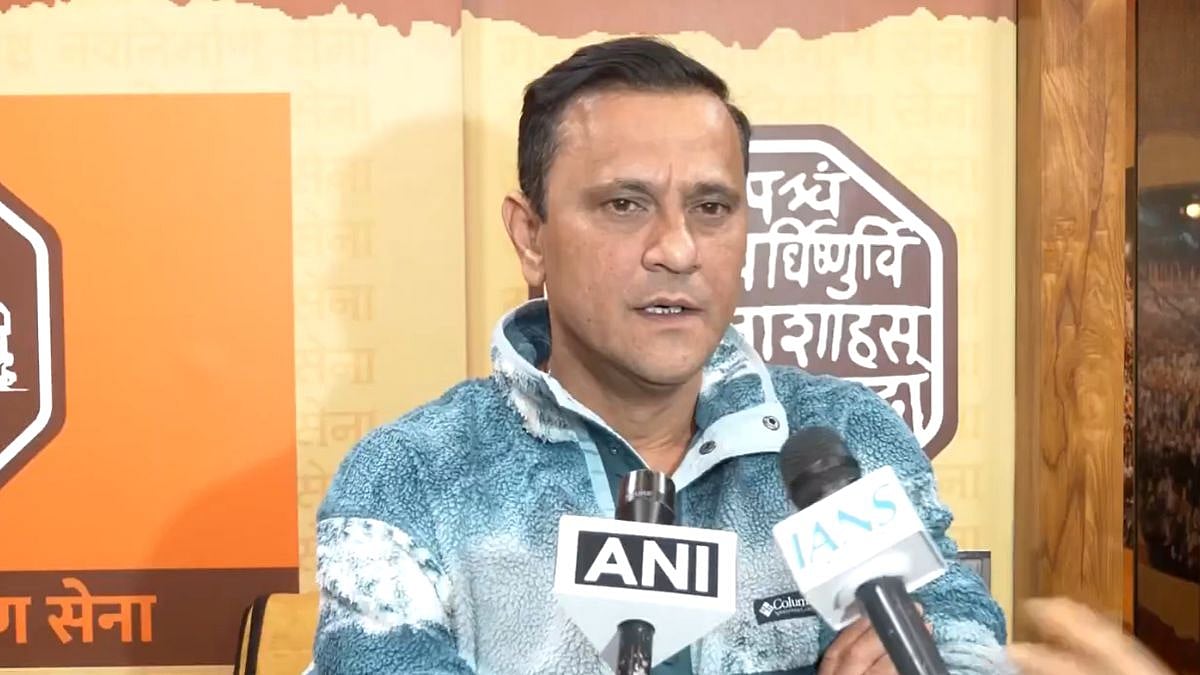A climate crusader-cum-academic-cum farmer, who has analysed long-term and short-term climate data, has warned that by 2100, Maharashtra will become hotter, wetter and agriculture activities would be hit in a big way, affecting major crops and raising questions on food security for the people.
Coming 75 years would affect Maharashtra
Prof Rahul S. Todmal, who teaches Geography at the Vidya Pratisthan's ASC College, Baramati (Pune), likes to describe himself as a farmer by upbringing and a climate activist by choice, has prepared a study, 'Future Climate Change Scenario over Maharashtra, Western India', with several stunning revelations of how the coming 75 years would affect the state.
"I used the projected climate data (regional model) from the Indian Institute of Tropical Meteorology (IITM), Pune, for the period 2015-2100, based on the Representative Concentration Pathway 4.5 scenario that was considered in the Fifth Assessment Report of IPCC," Todmal told IANS.
Maharashtra to experience a staggering increase in rainfall
Accordingly, Maharashtra will experience a staggering increase in monsoon rainfall between 18-22 per cent in the regions of Raigad, Satara, Pune, Kolhapur, Nagpur, Amravati, Yavatmal, Wardha, Bhandara, Gondia and Akola, over the next 25 years (2050). "However, this rainfall increase can be destructive if it occurs along with an increase in extreme events and repeat the catastrophic flood events witnessed in Kolhapur, Sangli and Satara districts (August 2019).
Most districts of Vidarbha region are likely to see a spike in rainfall by 53-122 mm, with Nagpur-Wardha poised to see rainfall increase of 82-122 mm," Todmal said. The 30 districts (out of 36) which will see big jump in rainfall are Mumbai & Mumbai Suburban, Thane, Palghar, Raigad, Ratnagiri, Sindhudurg, Dhule, Jalgaon, Nandurbar, Nashik, Ahmednagar, Pune, Solapur, Satara, Sangli, Kolhapur, Hingoli, Aurangabad, Jalna, Buldhana, Amravati, Yavatmal, Washim, Akola, Nagpur, Bhandara, Gondia, Nagpur, and Wardha. Though an increase in rains is a 'natural bonus', it can cause havoc if accompanied by extreme events that could threaten rainfed agriculture through flash floods, waterlogging and other woes, besides posing challenges for water resource management, he avers.
80 per cent to witness a rise in AMT
After the wetter spells, 80 per cent of the state will see a rise in Annual Mean Temperatures (AMT) of between 1C-2.5C degrees, albeit with spatial variations. These districts are Mumbai & Mumbai Suburban, Thane, Palghar, Raigad, Ratnagiri, Sindhudurg, Dhule, Jalgaon, Nandurbar, Nasik, Ahmednagar, Pune, Solapur, Satara, Sangli, Kolhapur, Hingoli, Aurangabad, Jalna, Buldhana, Amravati, Yavatmal, Washim, Akola, Nagpur, Bhandara, and Wardha.
"Along with the rise in AMT, the annual minimum-maximum temperature is also expected to increase, meaning that in the coming years, winters would be quite warmer and summers would be much harsher," said Todmal grimly. This twin development will directly impact agriculture and crops in different parts of the state, making them vulnerable and also hit the farmers badly, said Todmal, himself a tiller who goes in his fields regularly. With the Planet heating up, jowar crops will plummet by 6-18 per cent in Satara, Pune, central Maharashtra; Sugarcane will drop by 6-22 per cent in Osmanabad, Pune, Ahmednagar, Sangli, Kolhapur, Chhatrapati Sambhajinagar, Satara and Ratnagiri.
Climate change to impact agriculture activities
Other major crops to be hit would be rice, bajra and cotton with the increased temperatures due to germination/pollen-related aspects, and the rising mercury would affect both the Kharif and Rabbi crop seasons, with rainfed crops and irrigated crops facing a decline in productivity. The AMT increase in the winters may hit wheat cultivation, plus augment the rate of evapotranspiration that could aggravate water scarcity in parts of the state, especially those falling in the 'rain shadow' zones.
Todmal said though the state has a larger net sown area under rainfed crops, in the past few decades, the area under cash crops (sugarcane, cotton, onion, maize, etc) has increased with a corresponding increase in demand for agricultural water. Against these challenging backdrops, Todmal said that agro-experts and agronomists could contribute by introducing low-water requiring crop varieties that can withstand and perform in future climates, while the government should introduce stricter policies on cropping patterns depending on the cropping zones to reduce pressures on water resources for farming.
Despite huge investments in rainwater harvesting, water scarcity persists
Despite huge investments in rainwater harvesting in the state, water scarcity persists, in stark contrast to Israel, which has marginal rainfall (500 mm) but has conquered its water crisis by applying water-saving techniques in agriculture, he pointed out. Todmal cited a World Bank (2008) report warning that the droughts and floods (in 2003 and 2005) have consumed about Rs 175 billion, which was larger than the planned budget of Rs 150 billion on agriculture, irrigation and rural development for 2002-2007. These extreme events are also responsible for the suicides of around 400,000 farmers in the state since 1995 till date, and the future hotter-wetter months could have serious implications not only on the country's agriculture and economy but also society at large.










